This article is archived and only made available for historical reference. If you’d like to discover UCSF’s most recent advances in research, education and patient care, please visit the UCSF News Center.
Archive: Physician-Scientist Lloyd “Holly” Smith, ‘Heart of UCSF for Over Half a Century,’ Dies at 94
Lloyd Hollingsworth “Holly” Smith Jr., MD, a visionary physician-scientist whose uncompromising quest for excellence over a career spanning half a century helped transform UC San Francisco into the world-renowned health sciences university it is today, died peacefully at his home on June 18. He was 94.
A Harvard-educated Southern gentleman with a remarkable sense of humor, Smith served 35 years as chair of the Department of Medicine and associate dean in the UCSF School of Medicine, leading it through significant growth. Even during retirement, Smith served as a trusted adviser to several chancellors and remained actively committed to UCSF’s future.
“Holly was the heart of UCSF for over half a century,” said Bruce Wintroub, MD, vice dean in the School of Medicine and a friend of his for 36 years. “He led UCSF into the modern era of academic medicine through his vision of the linkage of science, clinical care and education. He surrounded himself with outstanding people and led us all with his humor and his vision.”
Smith’s arrival at UCSF from Harvard University in 1964 occurred when UCSF was celebrating its centennial anniversary as the oldest medical school west of the Mississippi. Considered a mediocre institution at the time, UCSF nonetheless was granted full administrative independence by the University of California to control its own educational and financial destiny – a direction guided in part by Smith. From the start, Smith proved to be a driver for positive change.
“Holly Smith is the founding father of the UCSF as we now know it,” said Robert Wachter, MD, chair of the Department of Medicine. “It is difficult to overestimate his impact. When he arrived here in 1964, this was an academic backwater. When he stepped down as chair 21 years later, UCSF was unambiguously a world-class institution. The pillars of today’s UCSF – the multi-hospital system, the culture of innovation, the interconnectedness between clinical care and research, the importance of education and mentorship – are all owed to Holly’s leadership and vision.”
Changing the Culture
Upon Smith’s arrival at UCSF, Wachter said, “he immediately set out to change the culture of the organization, including ousting what he and the other chairs considered to be an ineffective chancellor.” He built a tighter integration in research, education and patient care with the San Francisco Veterans Affairs Medical Center (SFVAMC) and what is now called Zuckerberg San Francisco General Hospital, forming strong partnerships that continue to thrive today.
In a 2012 conversation with Ushma Neill for the Journal of Clinical Investigation or JCI, Smith described what he found at UCSF. “The school could be evaluated in one of two alternate ways. Under close scrutiny, poor leadership, missed opportunities, lack of standards, and complacency were clearly evident. Viewed otherwise, however, UCSF was part of a great public university, some components of which were clearly eminent. Berkeley was a shining example. In booming California, public support of education was exemplary. I was comfortable at Harvard, but why not take a chance, especially when young?”
Lloyd Hollingsworth “Holly” Smith Jr. (center), MD, high-fives his wife, Margaret Smith, during an April 2018 reception. Holly Smith remained committed to UCSF throughout his semi-retirement. Photo by Sonya YruelBeginning in the mid-1960s, Smith and others transformed graduate teaching and interschool collaboration – particularly integrating basic science training with clinical instruction – that resulted in pioneering programs across all four professional schools, the new Graduate Division, and improved patient care at UCSF Medical Center. These innovations catapulted UCSF to the top ranks of U.S. academic medical centers, creating an environment ripe for revolution, birthing the biotechnology industry and establishing UCSF and the San Francisco Bay Area as leading innovators in biomedical research.
In recognition of his many accomplishments, the School of Medicine named its top service award after him in 2000 and the department’s annual visiting professorship. In 2001, Smith was awarded the UCSF Medal – the University’s most prestigious campus award that recognizes individuals who have made outstanding personal contributions in areas associated with the University and its missions as well as those who inspire the work of those at UCSF to push the boundaries of what’s possible.
And recently, UCSF leaders agreed to name the entryway to the Clinical Sciences Building at the Parnassus campus the “Holly Smith Gateway,” a fitting tribute as that building serves as the connector between the clinical and research enterprises at UCSF, a link that Smith personified in his own career.
Training a Generation of Trailblazers
Throughout his tenure, Smith had a knack for organizational and individual development, being generous with his time as a mentor and offering unsolicited advice.
“He was a champion of women professionals well before others realized that failing to support the advancement of women is wasting talent that we need to solve our nation's greatest problems,” said Catherine Lucey, MD, executive vice dean and vice dean for education in the School of Medicine. “His personal support of individuals throughout their career has fostered a generation of physician leaders who are carrying UCSF values and passion into the world.”
Indeed, many of Smith’s faculty and trainees became important leaders in their own right, Wachter noted, including Nobel Prize winners, leaders of organizations, such as the U.S. Centers for Disease Control and Prevention, the National Institutes of Health, the Food and Drug Administration and the Robert Wood Johnson and Gates Foundations. “Moreover, one can trace the origins of the biotech revolution to Holly and the faculty whose careers he launched and nurtured,” Wachter said.
Among his protégés is Susan Desmond-Hellmann, MD, MPH, now CEO of the Bill & Melinda Gates Foundation. She served as UCSF’s first female chancellor from 2009 to 2014 after a successful career at Genentech. Smith served on the selection committee that admitted Desmond-Hellmann, a graduate of the University of Nevada, Reno’s School of Medicine, to serve her residency at UCSF.
“Holly Smith’s betting on me literally changed my life,” Desmond-Hellmann said. “On my best days, I tried to live up to his sense of purpose, dignity and fun. His impact will always be felt by me and UCSF.”
When then Chancellor Desmond-Hellmann, a change maker herself, needed the advice and counsel to rethink UCSF operations and its relationship with the University of California in light of significant financial challenges that led to employee furloughs, she tapped Smith to serve on her “Future of UCSF” working group to explore bold changes to better ensure UCSF’s long-term success.
Former UCSF Chancellor Susan Desmond-Hellmann (left), MD, with Lloyd “Holly” Smith Jr. (second from left), MD, at a meet-and-greet with the campus community in 2009. Desmond-Hellmann often turned to Smith for advice and counsel. Photo by Susan MerrellSmith sought out and supported Steven Schroeder, MD, past president and CEO of the Robert Wood Johnson Foundation and now a distinguished professor of health and health care. Schroeder was recruited in 1976 to create the Division of General Internal Medicine that launched in 1980. “I owe Holly so much,” Schroeder said. “He was a steady source of support and inspiration. He was intensely loyal, channeled his competitive spirit into making UCSF as successful as possible, and had a wicked sense of humor. He also had that rare ability to be both a transformative leader and still maintain a nurturing family life. It was an honor to have known him and work for him. UCSF was blessed that he chose to come here.”
Smith’s influence was felt beyond the medical school. Even throughout semi-retirement, Smith remained extremely committed to UCSF. He served as a respected adviser to Chancellor Sam Hawgood, MBBS, and served on UCSF’s 150th anniversary committee, led by Mary Anne Koda-Kimble, PharmD, dean emeritus of the School of Pharmacy.
“His vision was unwavering, and he was a master diplomat within UCSF and on the national scene for over half a century,” Hawgood said. “He led with great style always focusing on the important and always looking to the future. Holly described leadership as ‘the gentle art of letting others have your way.’ Holly was a master of that gentle art. He will be missed but never forgotten.”
Adds Koda-Kimble, “As one of the creators of the UCSF we take for granted today and as an erudite and entertaining historian, he could describe the milieu, which facilitated the great science, education and clinical care that happened here. Holly was revered by those of us who were touched by his wit, wisdom, and nudges to push harder for excellence throughout UCSF, including the School of Pharmacy. We were certainly beneficiaries of Holly’s outsized circle of work.”
Holly had incomparable vision, fellowship and grace. He was one of UCSF’s master sculptors, a force of nature of the very best kind, and he deserves much of the credit for catapulting UCSF to become the preeminent institution that it is today.
Executive Vice Chancellor and Provost
Dan Lowenstein, MD, executive vice chancellor and provost, said his sadness at the loss of Smith is offset by the memories he has of the man. “Holly had incomparable vision, fellowship and grace. He was one of UCSF’s master sculptors, a force of nature of the very best kind, and he deserves much of the credit for catapulting UCSF to become the preeminent institution that it is today.”
His daughter, Virginia Broudy, MD, chief of medicine at Harborview Medical Center at the University of Washington, described her dad as a “splendid father to his six children. He enjoyed backpacking with us, and was a grand storyteller in the evenings. He had high standards. If we presented a report card that was slightly less than perfect, he would say, ‘good...but you could have done better.’ His sense of humor was legendary. He would regale us with jokes that we had heard before, but was such a wonderful raconteur that we would laugh heartily yet again.”
Smith was well known for his pithy aphorisms, spoken in his soft Southern accent, which he modestly admitted came from quotes he picked up along his long life’s journey.
“For those of us who had the joy of knowing Holly, he was unforgettable – larger than life, with a rare combination of Southern charm, blinding brilliance, and disarming humility,” Wachter said. “One of his most memorable traits was his sense of humor – most tangibly illustrated by his many aphorisms. Among my favorites: Never attribute to malice what you can attribute to incompetence.”
A Life Well Lived
The son of Lloyd H. Smith, an attorney and cotton farmer, and Phyllis Page, Smith was born in Easley, South Carolina, and he grew up during the Depression. His grandfather had been the town doctor, and his uncle, his role model, Hugh Hollingsworth Smith, MD, graduated from Johns Hopkins Medical School and developed the yellow fever vaccine at the Rockefeller Foundation, according to a biography by Smith's Harvard classmate Marvin Sleisenger, MD, who became chief of medicine at the SFVAMC.
Holly Smith during his student years at Harvard University. Photo courtesy of UCSF ArchivesAfter attending public high school as a straight-A student, Smith entered Washington and Lee University, but the Pearl Harbor attack occurred during his first year. This prompted him to pursue medicine at age 19 at Harvard Medical School, where he was accepted without an interview, joining his older brother who was admitted there as well. Smith graduated from Harvard magna cum laude.
After graduation he served as intern and resident at the Massachusetts General Hospital and at the Walter Reed Army Institute of Research. He was sent to Korea to investigate problems in care of the wounded where he found many injured were dying of acute kidney failure. Smith received permission to obtain an artificial kidney for its first trial in a combat zone hospital. He had previously conducted research on a primitive prototype of an artificial kidney as an elective project at the Peter Bent Brigham Hospital.
When asked by JCI what he would have done if he were not a physician or scientist, Smith replied: “I have never thought seriously of any other career. Our profession has so many rewarding alternative pathways. My own career has been rather strenuous at times but very fulfilling. It has been a privilege to be a part of UCSF as it has emerged as an eminent institution over the past generation.”
Smith also noted the importance of striving to achieve work-life balance. “Carefully guard the frontier between commitment and obsession in our demanding lives. It is important to be a participant in the pageantry of one’s times. There are no recorded deathbed statements: ‘I wish I had devoted more time to my profession.’”
Smith is survived by his wife of 64 years, Margaret Smith, six children and 17 grandchildren. A memorial service is being planned for the UCSF community.
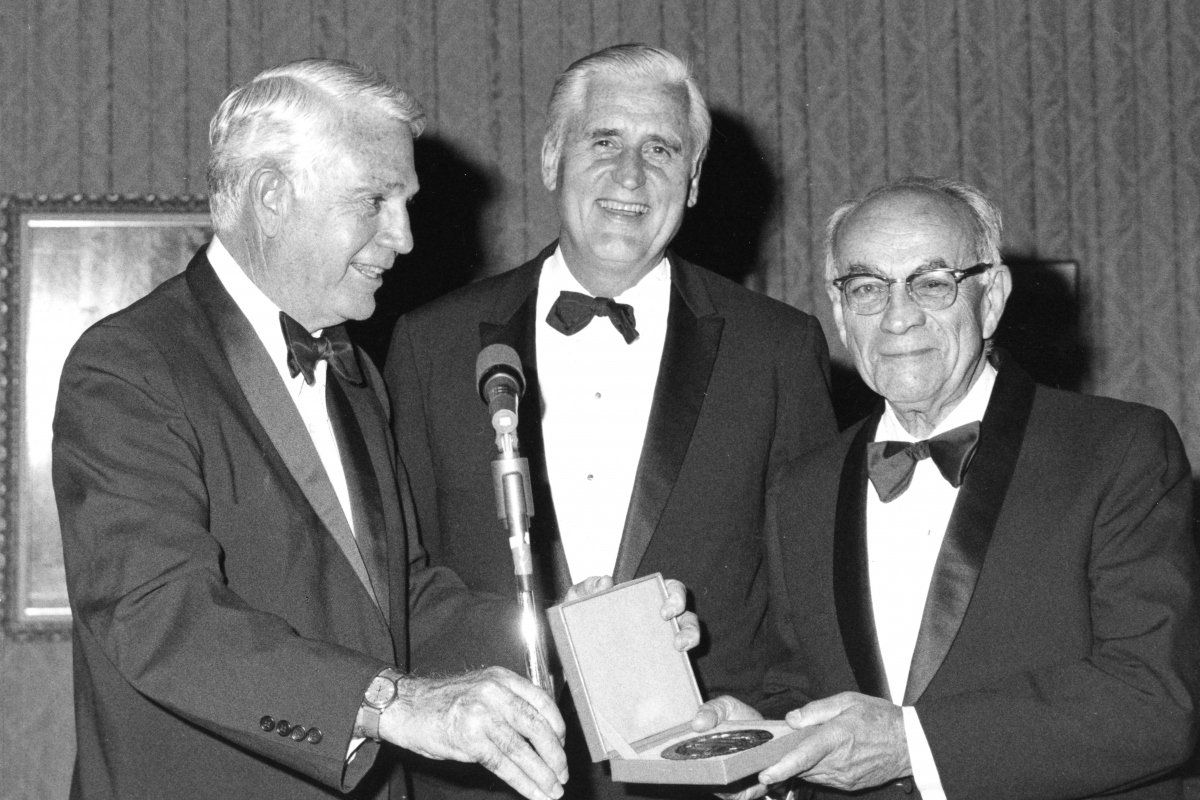
Holly Smith (center), MD, at a 1978 UCSF Medal presentation with Chancellor Francis A. Sooy, MD, and Julius Comroe. Photo courtesy of UCSF Archives
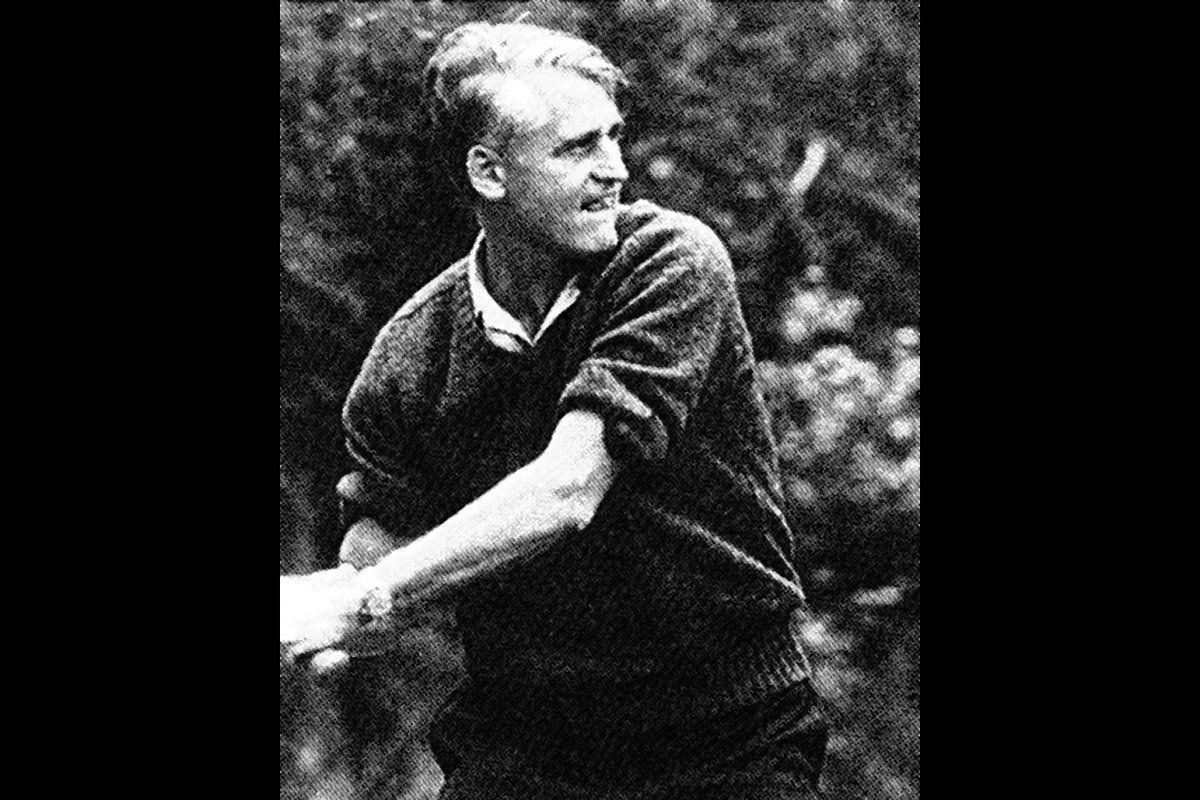
Holly Smith takes a turn batting during a UCSF Medical Center baseball game. At UCSF, Smith built a tighter integration in research, education and patient care. Photo courtesy of UCSF Archives
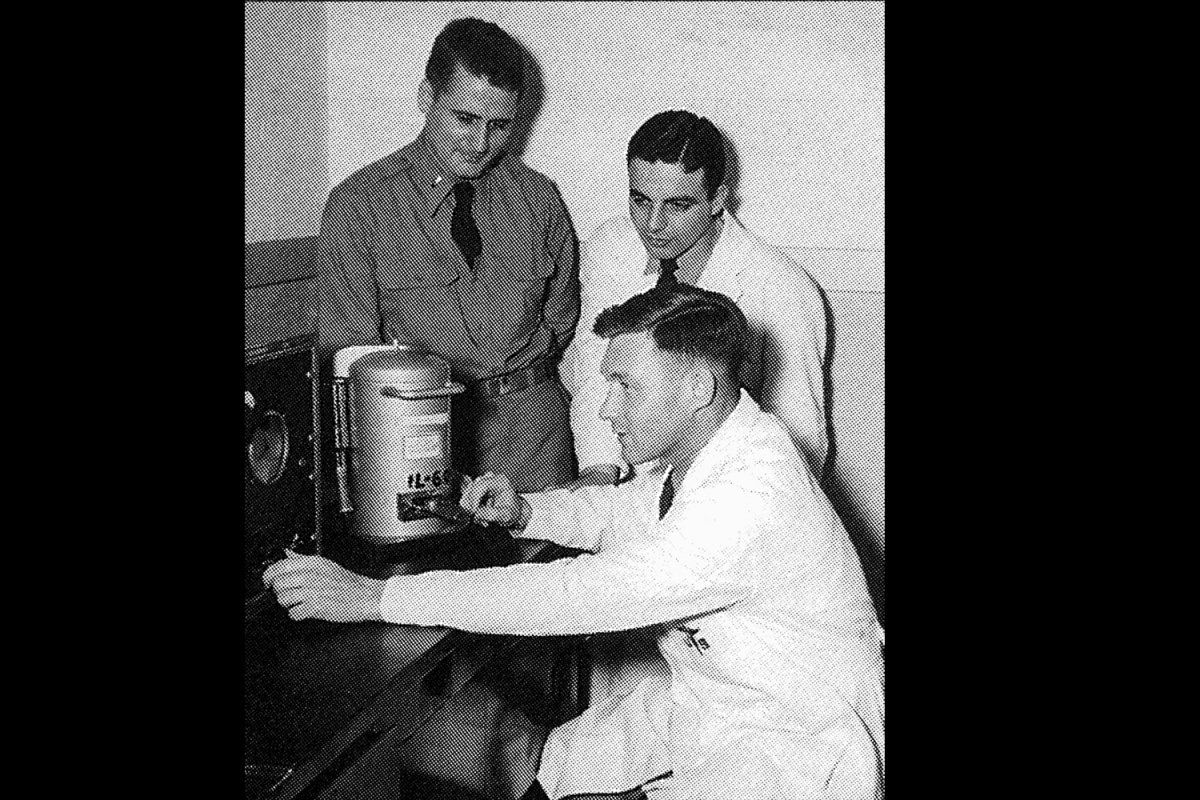
Holly Smith, MD, and his colleagues at the Walter Reed National Military Medical Center. Photo courtesy of UCSF Archives
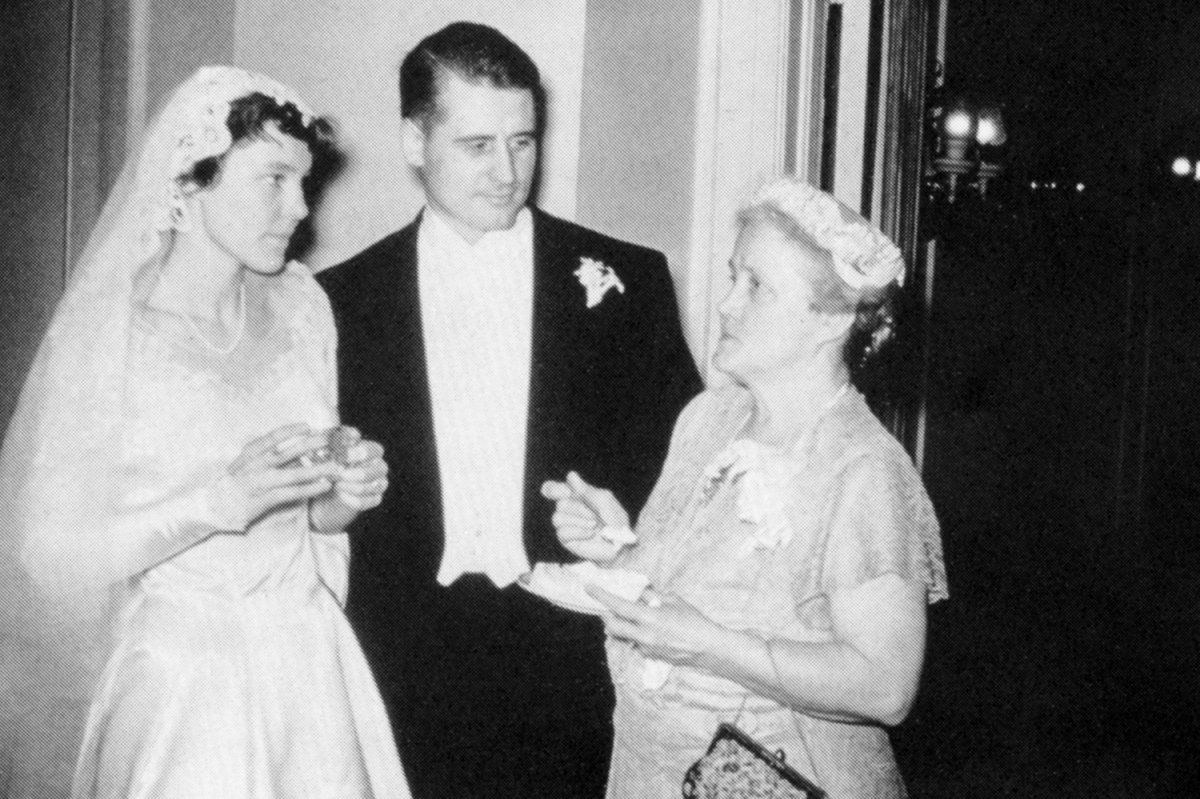
Holly and Margaret Smith on their wedding day. The couple was married for 64 years. Photo courtesy of UCSF Archives
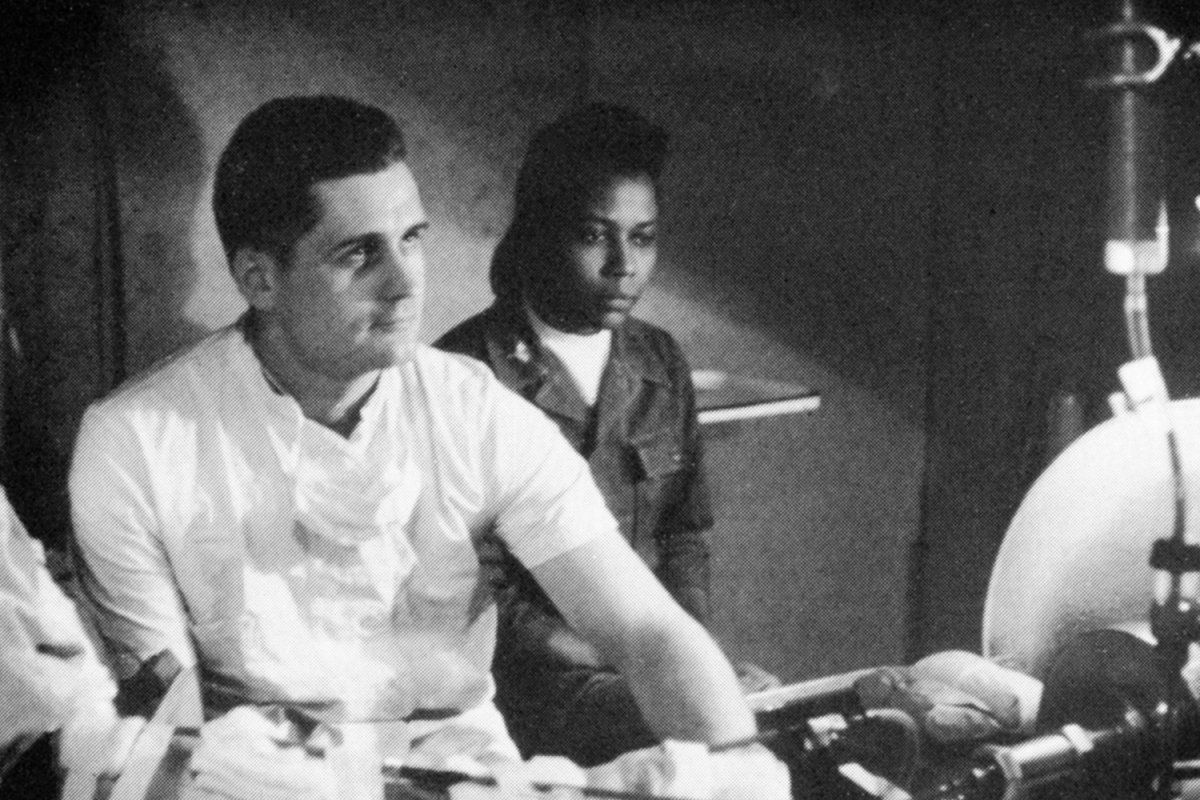
During the Korean War, Holly Smith received permission to obtain an artificial kidney for its first trial in a combat zone hospital. The technology saved many lives during the war. Photo courtesy of UCSF Archives
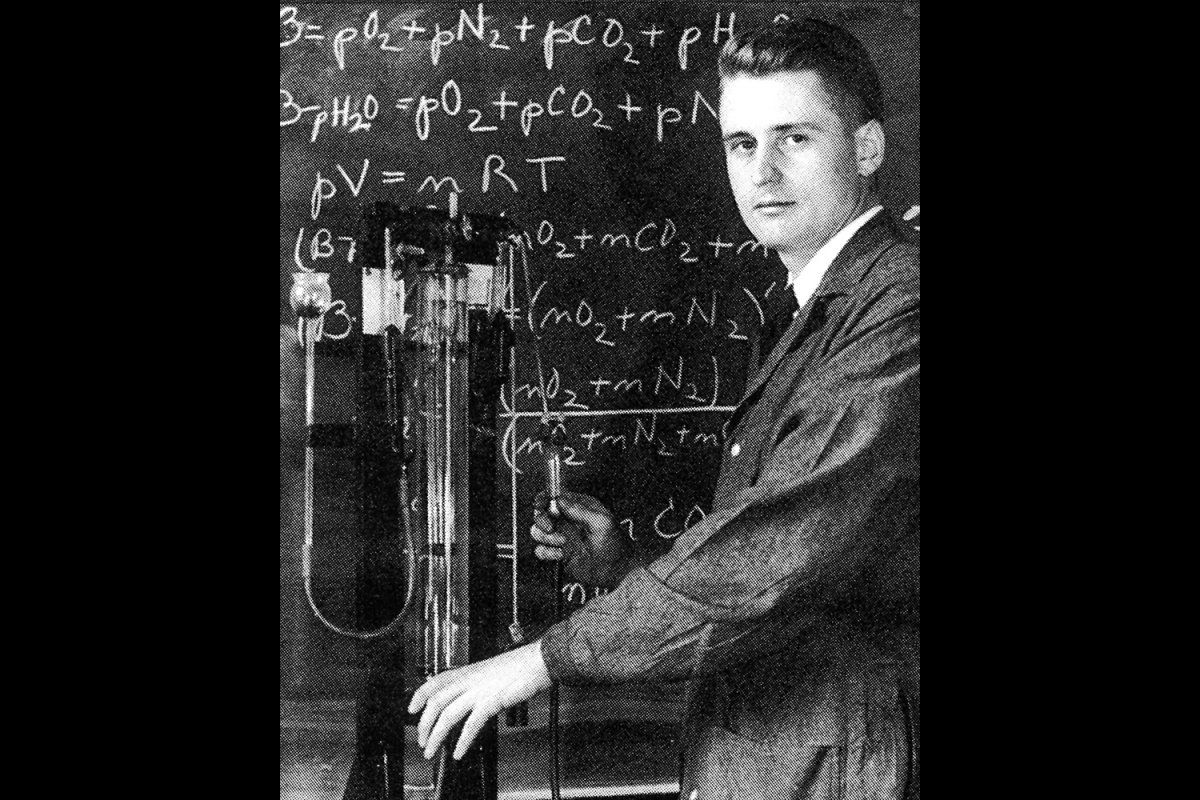
Holly Smith pursued medicine at the age of 19, applying to Harvard Medical School, where he was accepted without an interview. Photo courtesy of UCSF Archives
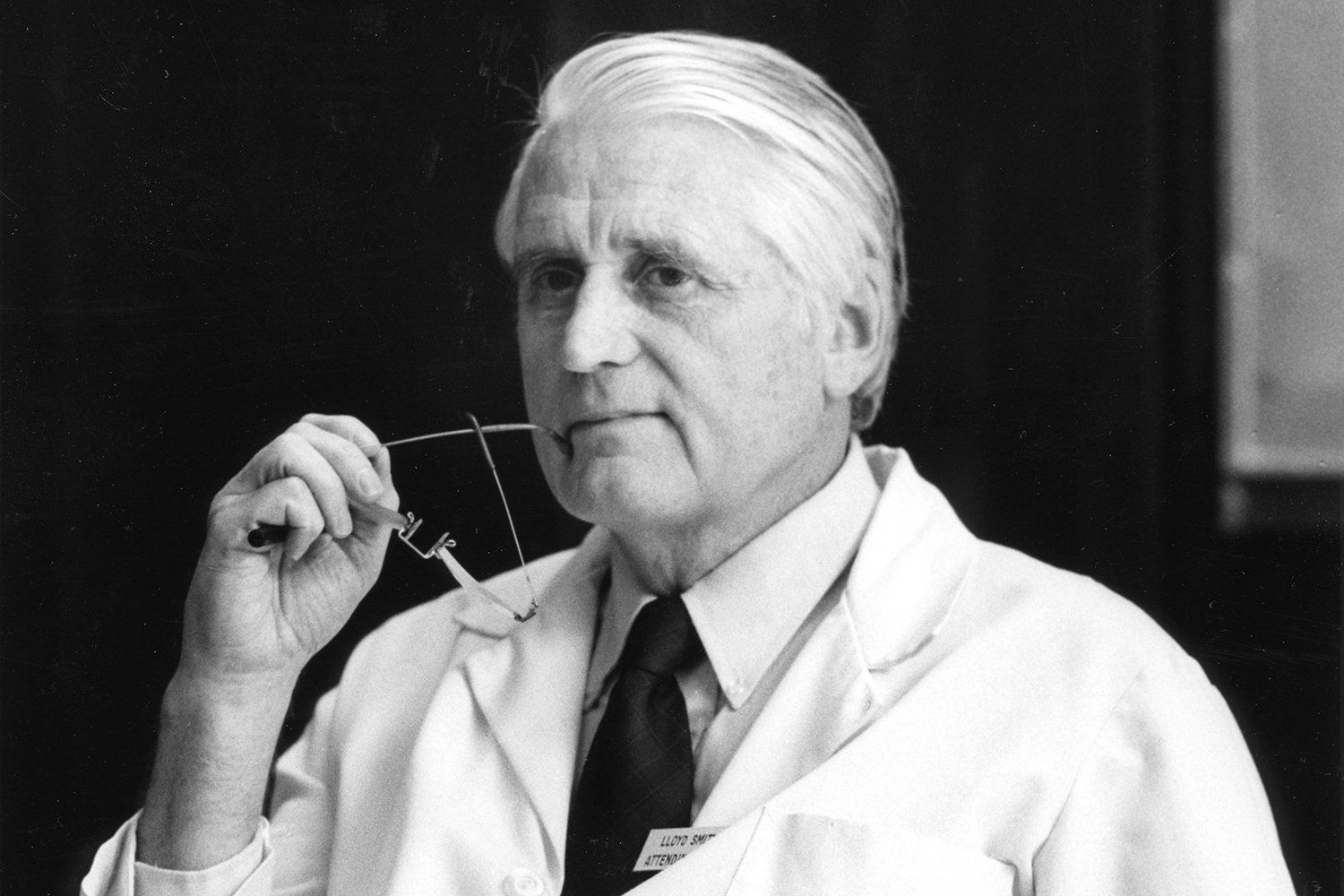
Lloyd Hollingsworth “Holly” Smith Jr., MD, served for 35 years as chair of the Department of Medicine and associate dean in the UCSF School of Medicine.
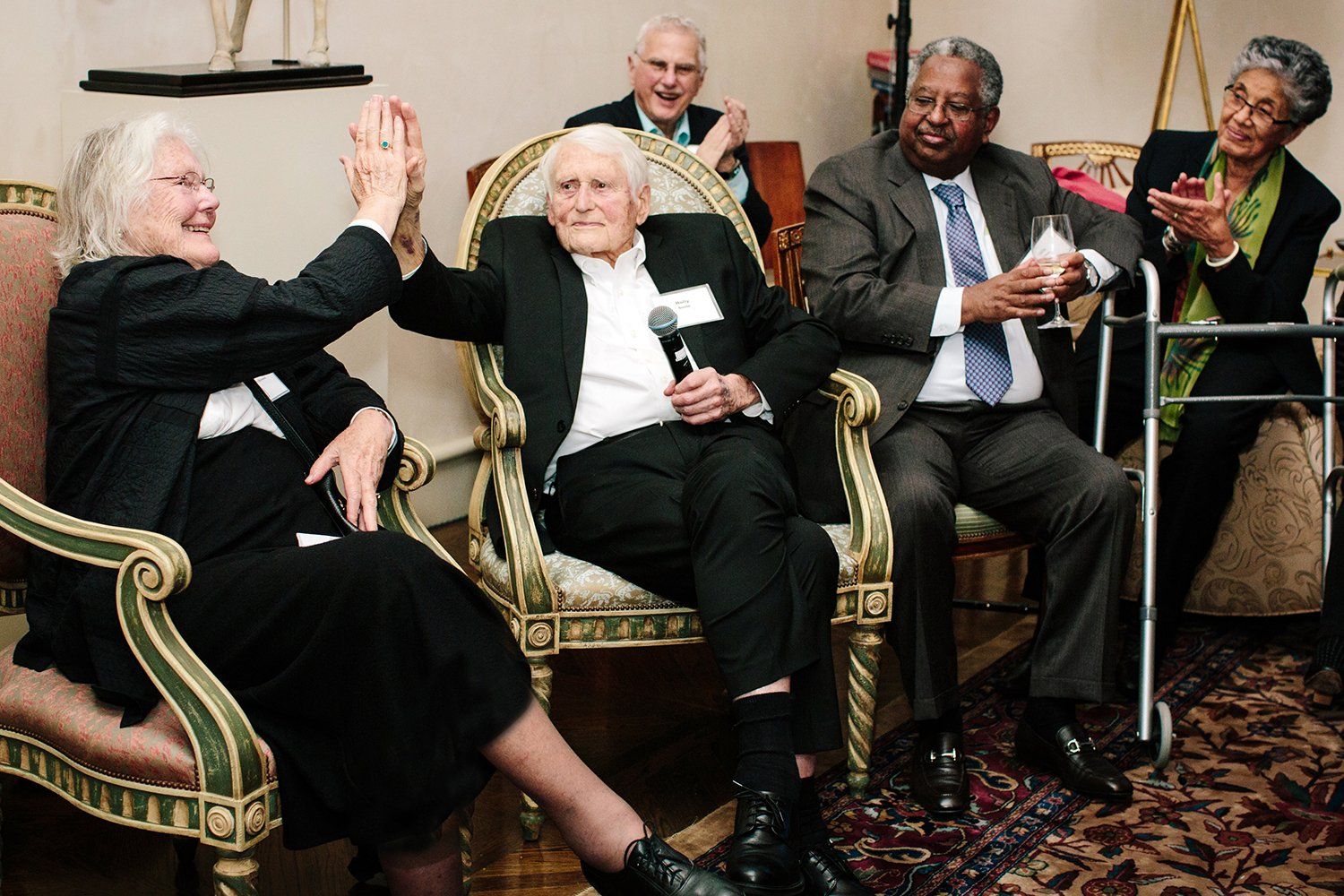
Lloyd Hollingsworth “Holly” Smith Jr. (center), MD, high-fives his wife, Margaret Smith, during an April 2018 reception. Photo by Sonya Yruel
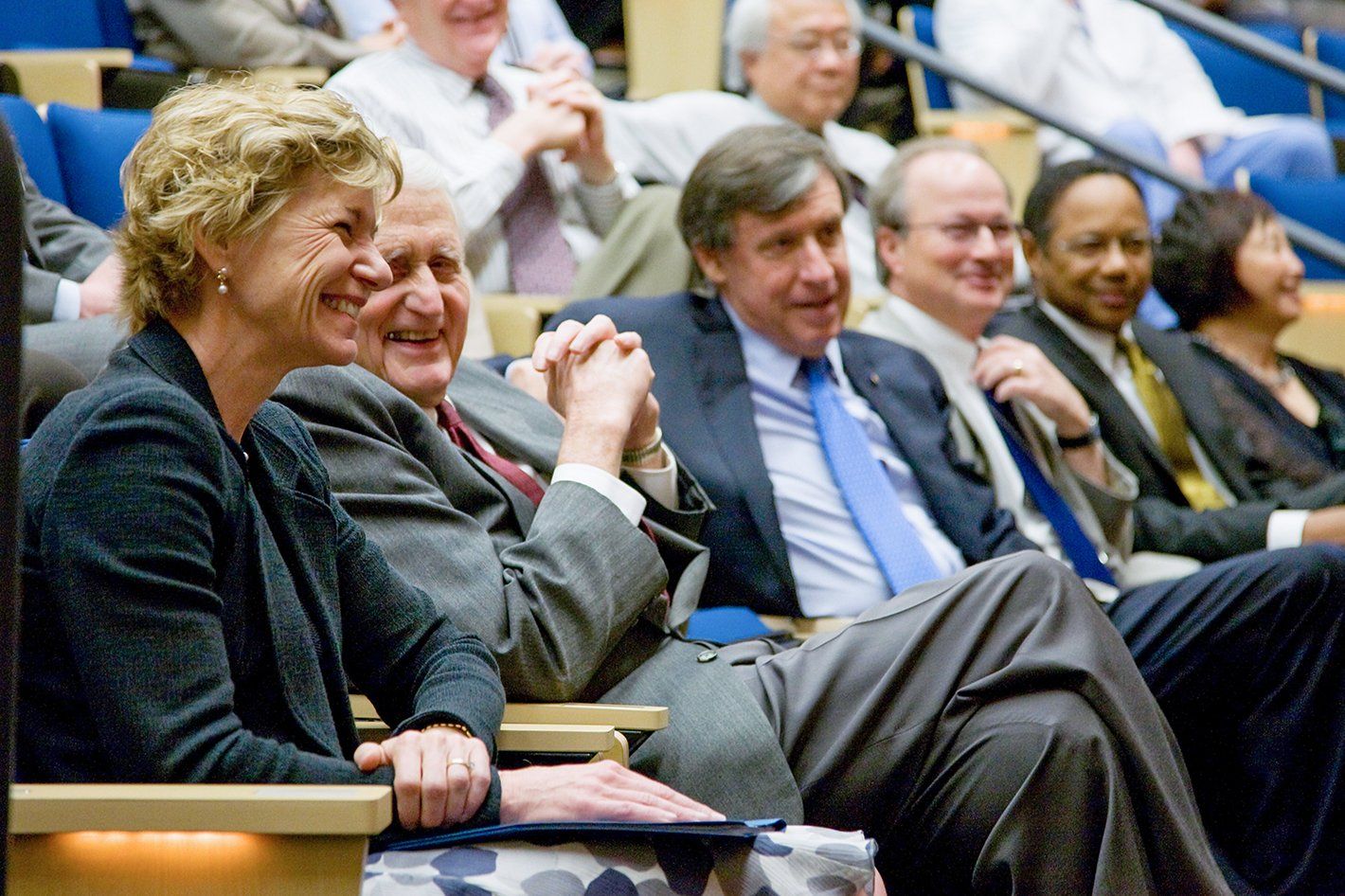
Former UCSF Chancellor Susan Desmond-Hellmann (left), MD, with Lloyd “Holly” Smith Jr. (second from left), MD, at a meet-and-greet with the campus community in 2009. Smith was known for being generous with his time as a mentor, including for Desmond-Hellmann. Photo by Susan Merrell
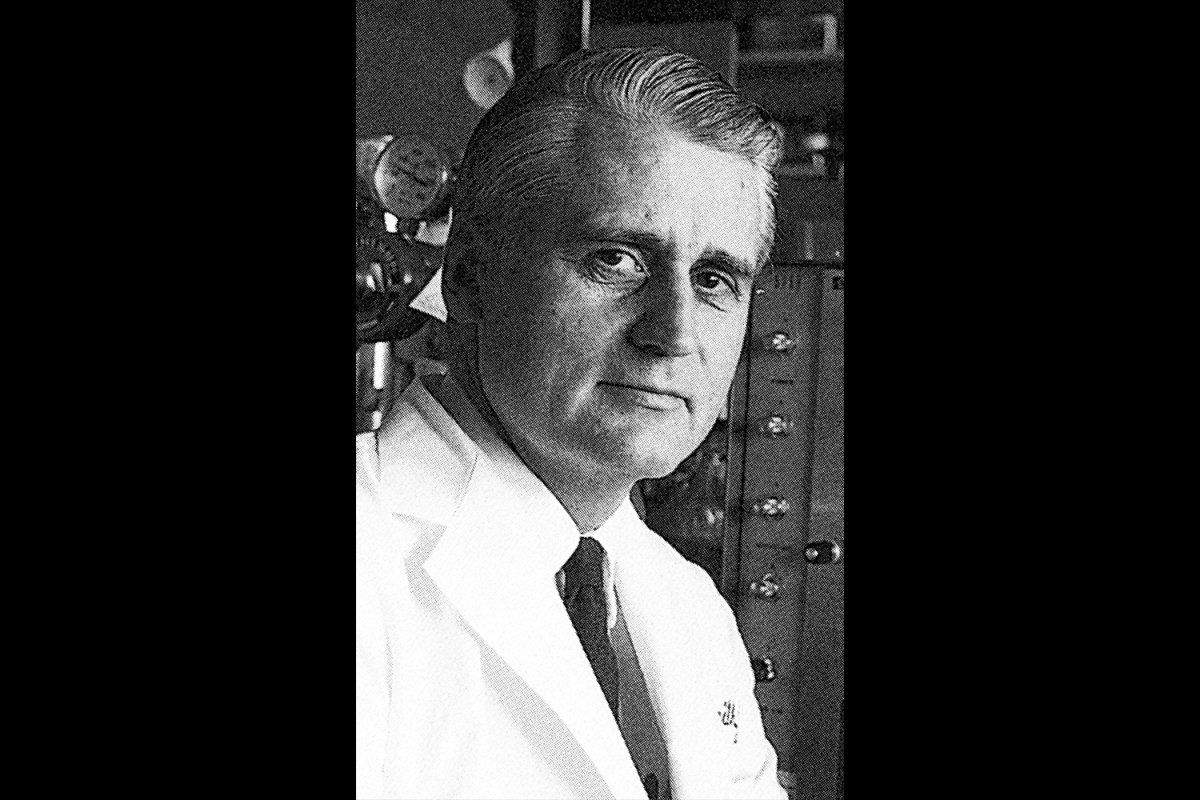
Holly Smith arrived at UCSF in 1964, and beginning in the mid-1960s, he and others transformed graduate teaching and interschool collaboration – particularly integrating basic science training with clinical instruction.